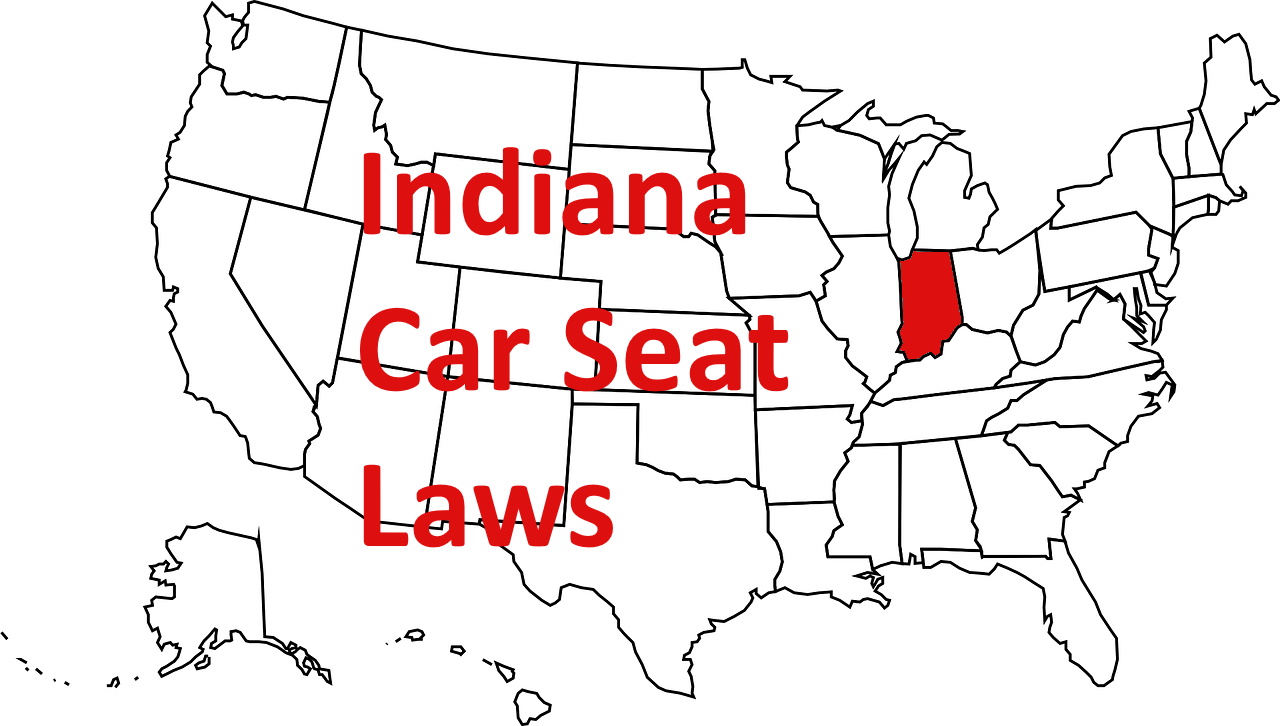Editor’s note: This article was updated in 2022 to link to a more appropriate section of the relevant statute.
In Indiana law, the Passenger Restraint Systems for Children law requires that a person transporting a child under eight years old correctly restrain and fasten the child using a child restraint system in accordance with the manufacturer’s instructions, and that a person transporting a child between the ages of eight and fifteen years old correctly restrain and fasten the child using either: a safety belt, if the motor vehicle has a safety belt meeting federal motor vehicle safety standards, or a child restraint system in accordance with the manufacturer’s instructions.
Babies and Children Up to Eight Years Old
A person transporting a child under eight years old must correctly restrain and fasten the child using a child restraint system in accordance with the manufacturer’s instructions. Failure to properly restrain and fasten a child under eight years old is a Class D infraction.
Children Eight to Fifteen Years Old
A person transporting a child between the ages of eight and fifteen years old must correctly restrain and fasten the child using either: a safety belt, if the motor vehicle is equipped with a safety belt meeting federal motor vehicle safety standards; or a child restraint system in accordance with the manufacturer’s instructions. Failure to properly restrain and fasten a child between the ages of eight and fifteen years old is a Class D infraction.
Penalties for Violations
If you are convicted of a first violation of Indiana’s Passenger Restraint Systems for Children law, the court will enter a judgment against you. If the court finds that you possess or have acquired a child restraint system, you will not be liable for any monetary judgment or costs. If the court finds that you do not possess and have not acquired a child restraint system, you will be ordered to provide proof of possession or acquisition of a child restraint system within thirty days. If you comply with this order and have no previous judgments of violation, you will not be liable for a monetary judgment or costs. The court will forward a certified record of the judgment against you to the bureau of motor vehicles. The bureau will not assess points for a violation.
Exemptions
You may be exempt from Indiana’s Passenger Restraint Systems for Children law if you are operating one of the following types of vehicles: a school bus; a special purpose bus; a taxi; a medical services vehicle; or a bus, motorcycle, motor driven cycle, passenger motor vehicle, or truck originally manufactured without safety belts before federal motor vehicle safety standards required the installation of safety belts; a motor vehicle owned or leased by the government and being used for official law enforcement duties; a motor vehicle being used in an emergency; or a motor vehicle that is funeral equipment and is being used in funeral services, in a funeral procession, or in the return trip to the funeral home.
Your child may be exempt if you present to the police officer or the court a certificate from a physician, physician’s assistant, or advanced practice registered nurse stating that it is impractical for your child to be restrained and fastened by a child restraint system because of a physical condition or deformity or a medical condition.
Your child may be exempt if he or she weighs more than forty pounds, is correctly restrained and fastened by a lap safety belt, and the motor vehicle either does not have lap and shoulder safety belts, or the motor vehicle has lap and shoulder safety belts but all are being used to correctly restrain other children under sixteen years old.
FAQ
What are the booster seat requirements in Indiana?
Indiana car seat law does not specifically mention when a child can be placed in a booster seat. Indiana child car seat laws state that children under eight years old must ride in the correct child passenger restraint system for their height and weight. The National Highway Traffic Safety Administration (NHTSA) recommends that children who have outgrown rear-facing and forward-facing car seats should be secured in a booster seat in the rear seat. Children should ride in a federally approved booster seat until they can wear a seat belt correctly. The NHTSA guidelines estimate that children between 4 and 7 years old meet the height and weight requirements for a booster seat.
What are the car seat rear-facing laws in Indiana?
Indiana child car seat laws do not mention when a child can be transferred from a rear-facing to a forward-facing car seat. The NHTSA recommends that children should ride in a rear-facing car seat as long as they meet the weight and height recommendations for that seat. Once your child outgrows their rear-facing car seat, they can ride in a forward-facing car seat. The NHTSA estimates that children up to a year old should remain in a rear-facing car seat.
When can a child sit in the front seat in Indiana?
Indiana car seat laws do not mention when a child can ride in the front seat. Indiana follows the NHTSA recommendations on when a child can sit in the front seat. The NHTSA recommends keeping your child in the back seat until they reach 12 years old.
* Ms. Blake is licensed in the state of Maryland. The information provided in this article does not constitute legal advice and does not create an attorney-client relationship.

